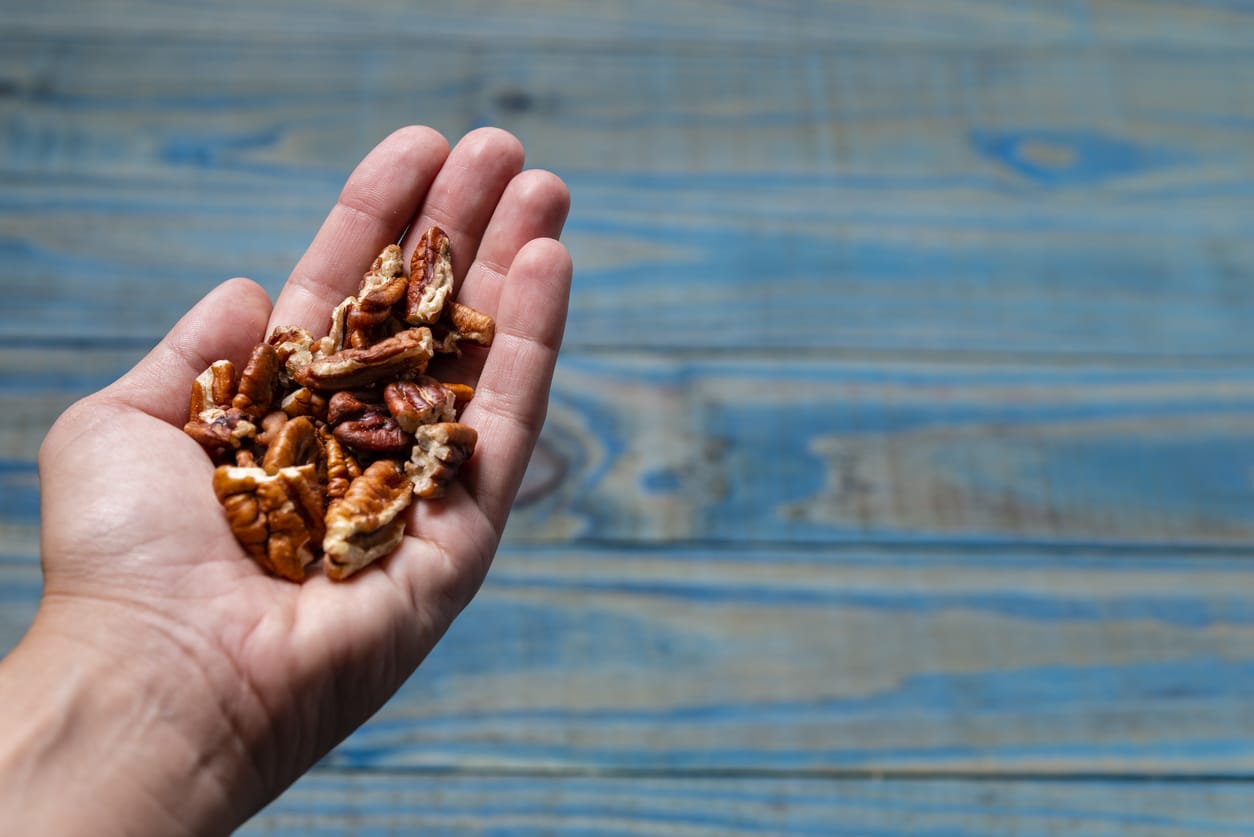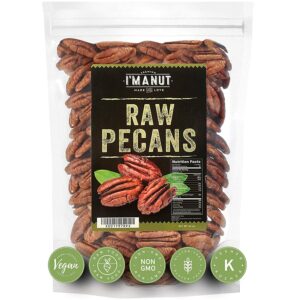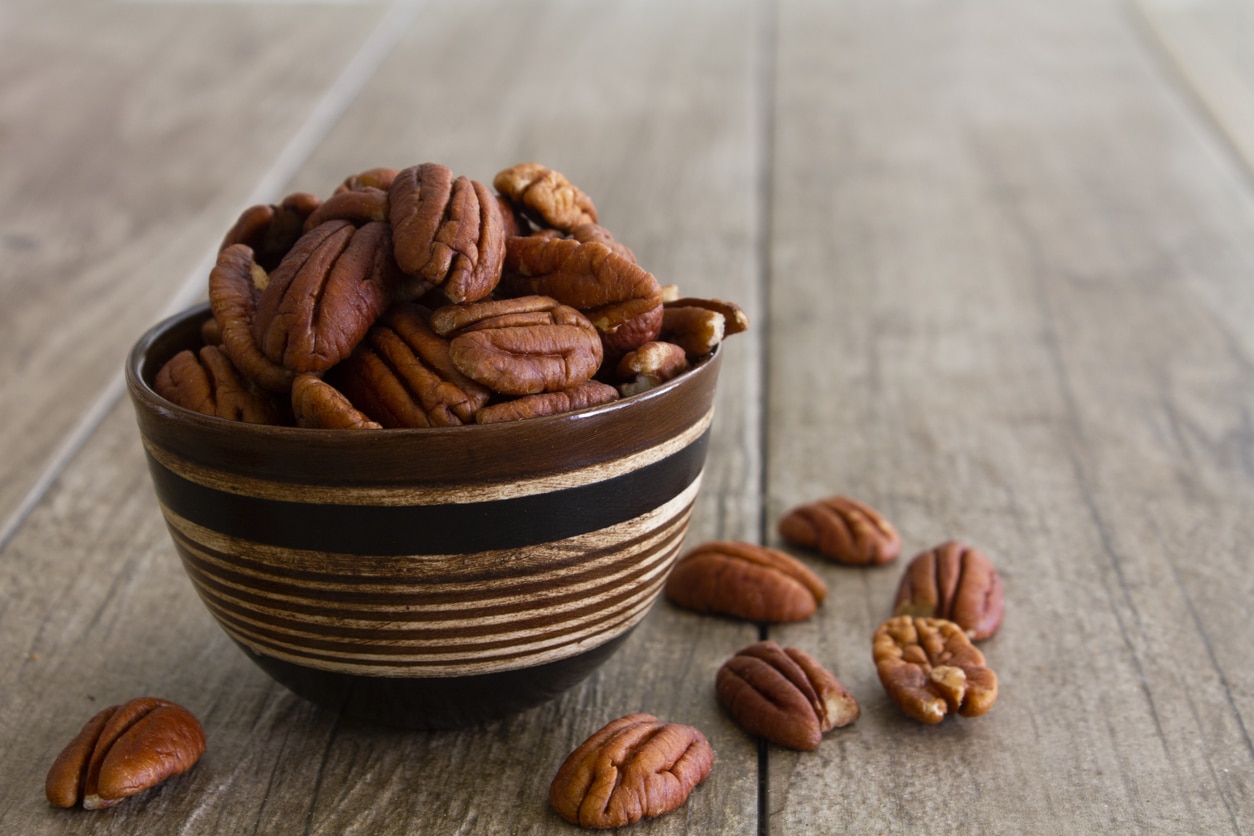Pecans, the only tree nut native to North America, have a long history. They were prized by many Native American tribes long before European colonists ever set foot on the continent due to the ease of getting into the nut and their pleasant flavor. Later, in the last decades of the 1700s, early United States presidents George Washington and Thomas Jefferson, along with many other pioneers, planted pecan trees throughout the country. Commercial production of the pecan in the United States began in earnest after an enslaved individual by the name of Antoine perfected the grafting technique for these trees in 1846 or 1847.
The delicate, creamy flesh of these nuts is filling and rich in protein. Pecans are both an exceptional ingredient in a variety of dishes, from appetizers to desserts, as well as being a tasty snack all on their own. But the delightful flavor and texture of these nuts are not their greatest asset. Pecans have long been considered a superfood because they are packed with crucial nutrients, including vitamins, minerals, unsaturated fats, and fiber.
Let’s look at the different ways that pecans can promote good health:
1. Pecans support the immune system.

Pecans are an excellent source of many components critical to the functioning of the immune system. They are packed with immune-boosting vitamins, including vitamins E, A, and B12, as well as a significant amount of essential trace elements like magnesium, copper, and zinc. In addition, pecans are rich in ellagic acid. Ellagic acid is a powerful antioxidant and polyphenol that shows some efficacy against both cancer cell growth and loss of brain function.
2. They reduce inflammation.
The high amounts of beta carotene, Omega-3 oils, manganese, copper, and vitamin E make pecans anti-inflammatory powerhouses, reducing the amount of inflammation throughout the body. Gluten sensitivity is a common trigger for inflammation, buts like pecans are naturally gluten-free. Choosing a gluten-free diet may help prevent flare-ups from occurring in the first place. Intense or chronic inflammation in the body can increase the chances of developing a whole host of problems, including joint problems, asthma, ulcers, and Alzheimer’s.
3. Pecans protect the heart.

As noted in the previous paragraph, pecans have an anti-inflammatory effect, which helps protect the heart from damage. Pecans have been designated by the American Heart Association’s Heart-Check Certification Program as a heart-healthy food when enjoyed as part of a healthy eating pattern. They recommend eating four 1.5-ounce servings of unsalted, unoiled nuts per week. This is due to the abundance of healthy, unsaturated fats that they contain. Monounsaturated fats that are eaten in moderation also have the effect of lowering the total blood cholesterol, further protecting the heart.
4. Pecans stabilize blood sugar and promote healthy weight loss.
Pecans have an exceptionally low glycemic index compared to other foods. Eating them doesn’t trigger the spike in blood sugar that high glycemic foods like white bread, sugary foods, and breakfast cereals often do. In some cases, eating pecans may even counteract a spike in blood sugar brought on by eating high-glycemic foods.
Pecans are also high in both protein and fiber. This helps suppress the appetite and makes one feel full longer, making it easier to stick to nutritional guidelines.
5. They guard against osteoporosis.

Pecans are a good source of both calcium and vitamin D, both known for their bone-building capabilities. They are an excellent source of manganese and phosphorus as well—other minerals that are vital to bone density. Additional phosphorus may be particularly important in maintaining bone health for those taking medications to fight osteoporosis. Some anti-osteoporosis treatments may bind to the phosphorus in the blood, so it can’t be used to build bone.
A Few Downsides
The downsides to incorporating pecans into your diet are very few. Nuts of all sorts, due to the unsaturated fats, phytates, and tannins they contain, can lead to gassiness, bloating, and even diarrhea when eaten in excess, and upwards of three million Americans experience dangerous allergic reactions to tree nuts like pecans. In addition, pecans are an extremely calorie-dense food. This makes them a wonderfully filling treat that can help control both weight and appetite when eaten in moderation. When eaten in excess, however, those calories can quickly add up, leading to unexpected weight gain instead.
How much is too much?
We know that the American Heart Association recommends at least four 1.5-ounce servings of nuts a week as a minimum, but how much is too much? While there isn’t a risk of selenium poisoning, like there is with Brazil nuts, there are upper limits to the amount of pecans or other tree nuts one should consume in a day. Pecans are a great addition to your daily diet, but eating more than two or three 1.5-ounce servings of nuts per day may lead to unexpected weight gain and gastric discomfort.
Incorporating pecans into your daily diet is fun and easy. They can be incorporated into appetizers, sprinkled on salads, and mixed into entrees, and they add a delicate, nutty flavor to desserts as well. Unadorned, raw pecans make a quick and tasty snack.
Here are a few of our favorite recipes here at Prime Women:
Ricotta Pancakes with Banana Pecan Syrup
Lace Cookies with Orange Mascarpone and Raspberries
Healthy Snacking


PLANTERS Roasted Pecans, $6.58
Read Next:
Paying the Price for Bad Food Choices







